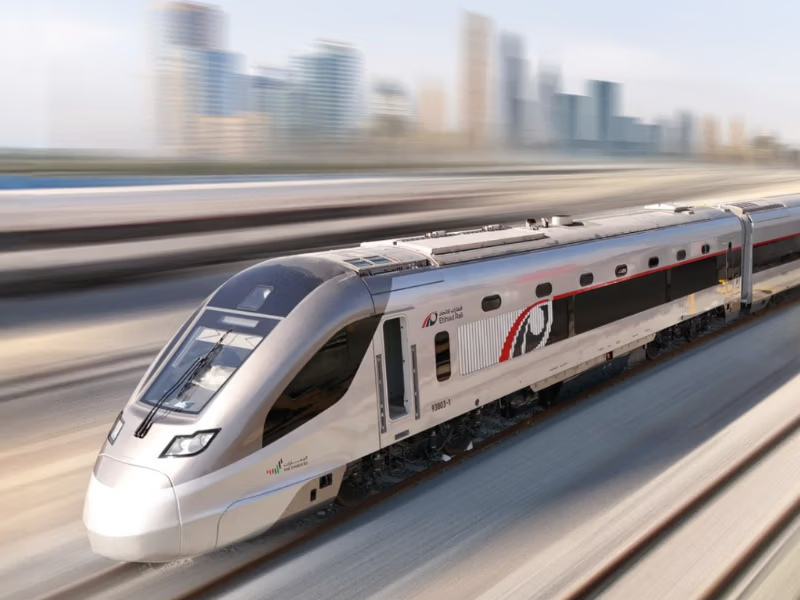Under an hour, soon, people will be able to travel from Abu Dhabi to Dubai with no traffic jams. That futuristic vision is quickly becoming reality with Etihad Rail, the UAE’s enterprising national railway project, set to launch its passenger service by 2026. But beyond fast travel, this mega-infrastructure project is laying the tracks for a major modification of the UAE’s job market.
A Project on the Move
Etihad Rail, part of the UAE’s Dh50 billion “Projects of the 50” initiative, aims to connect all seven emirates and key industrial hubs through a state-of-the-art railway network. While most people focus on the convenience of train travel, the real story lies in how this project is reshaping the workforce and creating new economic opportunities.
9,000+ New Jobs by 2030
According to reports, more than 9,000 new jobs will be created across the country by 2030 through Etihad Rail. These span a wide range of fields, including: Engineering and construction, Train operations and logistics, Railway maintenance and safety, Technology and transport infrastructure. Even during its construction phase, the project has already employed tens of thousands of workers, impacting supply chains, factories, and service sectors.
Boosting Local Industry
Etihad Rail is also fueling local manufacturing. For instance, UAE-based factories are producing critical rail components like concrete sleepers, contributing to industrial growth and opening up hundreds of new roles in production, quality control, and supply chain management.
Training the Next Generation
Through partnerships with institutions like ADVETI (Abu Dhabi Vocational Education and Training Institute), the rail project is investing in the upskilling of Emirati talent. Students are being trained in transport, logistics, and railway engineering, preparing them for lifelong careers in a rapidly evolving sector.
A Green Workforce
Etihad Rail’s electric-powered trains are expected to cut down thousands of heavy vehicles on UAE roads. This will significantly reduce carbon emissions by 70% to 80% over the next 50 years, according to official data—aligning with the UAE’s net-zero climate goals. In turn, this will create green jobs in environmental monitoring, sustainability management, and clean energy integration.
Long-Term Economic Impact
The economic ripple effect is staggering. The Abu Dhabi–Dubai line alone is expected to contribute up to Dh145 billion to the UAE’s GDP over time. By 2030, the full network could add Dh3.5 billion annually, with a high return rate of 15.5%.
Etihad Rail isn’t just a transport project, it’s a nation-building engine. From thousands of jobs to greener industries and upskilled youth, it’s redefining what the future of work looks like in the UAE. As tracks are laid across the desert, they’re also being laid across new career paths for generations to come.





